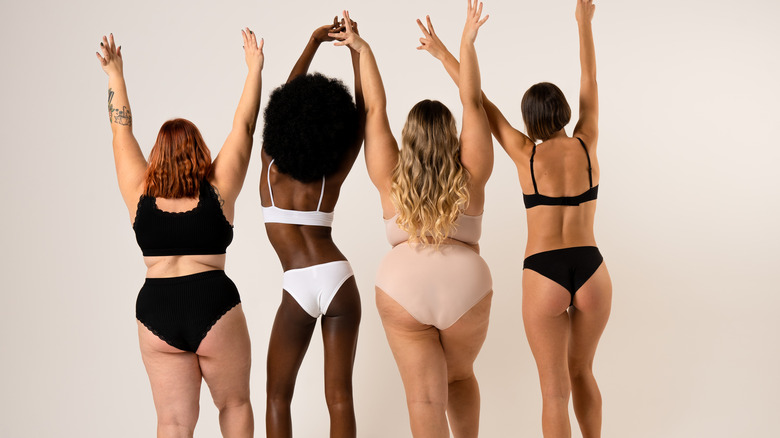Here's What Your Butt Can Predict About Your Health
You've all probably taken quick glances at your butt when you pass by a mirror. There's really no shame in this habit. After all, a gorgeous rear end looks great in those jeans you love and the midi dress you bought recently. This is perhaps why you're routinely on the lookout for the best butt exercises you probably aren't doing.
But did you know that in addition to giving your body the curves it deserves, your butt can also be a predictor of your health?
Apparently, if you carry more weight in your butt (put more simply, if you have a big butt), you might be at less risk of developing cardiovascular disease and also have better metabolic health. Gluteofemoral fat (having a pear-shaped body) is beneficial when it comes to maintaining good cholesterol levels and lowering blood sugar too. This is according to a 2010 study published in the International Journal of Obesity. Your metabolic health encompasses everything from your blood glucose, cholesterol levels, and blood pressure to health conditions like diabetes and stroke. How can your butt give you clues about health, exactly?
Your butt is an indicator of how fat is distributed in your body
You have probably heard doctors refer to body mass index (BMI) when they talk of body fat and health, but you can tell a lot about someone's health by looking at how fat is naturally distributed throughout their body too, according to internal medicine physician Dr. Elena Borukh (via Cleveland Clinic). For example, those who are apple-shaped might carry more weight in their mid-sections unlike those who have an hourglass figure and have fat stored on the top and bottom.
When you store fat on top, your heart and liver might be at more risk of ending up with some of this fat, per a 2017 study published in Cell Metabolism. This might be another reason why men (who typically carry more weight on top) don't live as long as women. Plus butt fat is not as problematic because it's made up of subcutaneous yellow fat (fat that's just under your skin, unlike visceral fat which wraps around your abdominal organs), according to a physician and spokesperson for the American College of Sports Medicine, Dr. Pamela M. Peeke, per Cosmopolitan. However, while some amount of subcutaneous fat protects your body from different temperatures and injury and also acts as an energy reserve, too much of it is bad too.
What does all of this mean for your overall health, though? Should all of us be aiming to acquire larger rear ends? Not necessarily.
Maintaining a healthy body shape is about looking at the big picture
Yes, running might be able to give you a bigger butt, but that's not what these findings are about really. It's about looking at the big picture of where excess weight is stored in your body and what you should be doing about it, according to Dr. Elena Borukh, per Cleveland Clinic, who added that having a bigger butt (pear-shaped body) and being overweight comes with its own risks too, like more stress on your legs which can lead to varicose veins and osteoarthritis in your hips and knees.
People with all body shapes can lead healthy lives as long as they're mindful of where their excess fat is stored. "Your body shape doesn't necessarily mean all that much about your health if you're living within a healthy weight range. It's more a matter of where extra weight lies that makes a difference in terms of your risk for certain chronic diseases," explained the doctor. That being said, visceral fat around your belly is a major health concern, according to health experts.
Try and avoid belly fat by reducing trans fats and sugar in your diet and aim for more nutritious and balanced meals like whole grains, leafy greens, fruits, lean protein, and healthy fats, per WebMD. For most of us, entirely changing the shape of our bodies is not a possibility (at least naturally), and while there's nothing wrong with wanting to acquire a bigger butt through exercise or diet, being healthy is about maintaining a healthy weight, eating a balanced diet, and exercising regularly.



